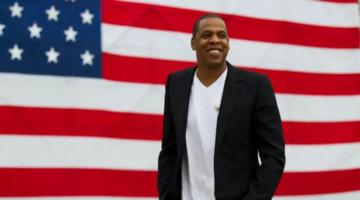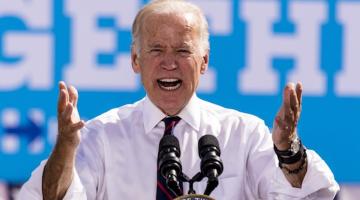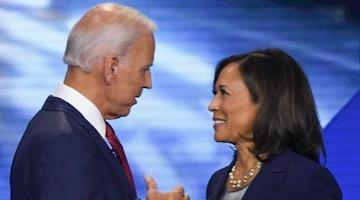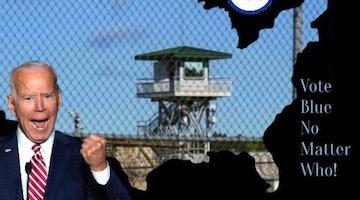Cory Booker Hates Public Schools / photo: Cory Booker and longtime ally Betsy DeVos
Cory Booker rose to prominence as a fanatical backer of school privatization, yet poses as a friend of public education and teachers.
“Booker has openly praised Republican leader Betsy DeVos’s organization American Federation for Children.”
Sen. Cory Booker (NJ–D) announced his presidential campaign last week. There’s plenty about Booker’s record worth examining, from his extremely cozy relationship with pharmaceutical companies to his bizarre public defense of Wall Street. But nothing in Booker’s past is as damning as his record on schools.
For close to two decades, Cory Booker has been at the forefront of a nationwide push to dismantle public education.
According to Booker, the education system is the main cause of our society’s fundamental problems, rather than, say, inequality and unchecked corporate power. As he explained in a 2011 speech, “disparities in income in America are not because of some ‘greedy capitalist’ — no! It’s because of a failing education system.”
Public schools, Booker continued, are also responsible for mass incarceration and racial injustice. To combat such evils, Booker has openly praised Republican leader Betsy DeVos’s organization American Federation for Children for fighting to win the final battle of the civil rights’ movement.
“Booker first rose to prominence by hitching his star to the corporate-backed ‘education reform’ movement.”
Scapegoating underfunded public schools for deeply rooted racial and economic problems makes little sense. But it’s been a ticket to the top for Cory Booker. In fact, it wasby hitching his star to the corporate-backed “education reform” movement thatBooker first rose to prominence.
The son of wealthy parents who were among IBM’s first black executives, Booker’s big political break came in September 2000, when he was tapped to give a keynote speech to the archconservative Manhattan Institute. Calling the Newark school system “repugnant,” Booker claimed there was “great evidence” that large groups of children “cannot succeed in the public school system.”
Yet rather than improving this system by increasing school funding or building public “community schools,” Booker made a hard case for charter schools as well as school vouchers, i.e., state funding for parents to pay for private schools. To give this pitch a social justice veneer, he quoted Frederick Douglas — “power concedes nothing without force” — and steeped his arguments in the language of racial justice.
Booker’s eloquent advocacy of corporate antiracism quickly caught the eye of wealthy hedge-fund investors interested in pushing privatization. In Dale Russakoff’s The Prize, a detailed account of philanthropic efforts to reform Newark’s public schools, Booker notes that though he “became a pariah in Democratic circles for taking on the Party orthodoxy on education,” his 2002 mayoral bid was boosted by “all these Republican donors and donors from outside Newark, many of them motivated because we have an African-American urban Democrat telling the truth about education.”
“Booker’s 2002 mayoral bid was boosted by Republican donors and donors from outside Newark.”
One of Booker’s main financial backers, Whitney Tilson, was honest about the profit motivations for large hedge-fund investors like himself. Charter schools, he explained to the New York Times, are the ideal philanthropic opportunity for such business leaders because “[h]edge funds are always looking for ways to turn a small amount of capital into a large amount of capital.”
While the over $3 million in campaign contributions Booker received from his school reform sponsors was not quite enough to buy him the 2002 election, Booker’s 2006 mayoral bid was victorious. Due in large part to his zealous commitment to privatization, Newark has gone from having less than 10 percent of students in charters in 2008, to over 33 percent today; by 2022, 44 percent of the city’s students are set to be schooled in these publicly financed but privately run institutions.
To “make Newark the charter school capital of the nation,” Booker in 2010 reached out to Republican governor Chris Christie and billionaire Facebook founder Mark Zuckerberg. Christie agreed to cede Booker an exceptional degree of mayoral control over education; Zuckerberg then gave Booker a whopping $100 million for the project.
“By 2022, 44 percent of the Newark’s students are set to be schooled in charters.”
In Booker’s view, the plan would have to be pushed from the top down, since the process could be influenced by forces like teachers’ unions, for whom the extension of charter schools represent a mortal threat. “Real change has casualties and those who prospered under the preexisting order will fight loudly and viciously,” explained Booker in his memo to the governor.
Despite long-standing myths about the private sector’s efficiency, much of Zuckerberg’s money was squandered in thousand-dollar-a-day consultantsand other ill-thought-out initiatives. And despite this massive private sector cash inflow, Booker’s reforms have done nothing to actually improve public education in Newark schools, even if one judges school quality through the dubious criteria of test scores. But these reforms did succeed in rolling back teacher union power, shrinking the public sector and undercutting democratic control over education.
One of Booker’s signature campaigns — orchestrated in conjunction with Cami Anderson, Newark’s infamously top-down superintendent — was to promote charters by closing underperforming public schools. Rather than trying to improve these through providing additional support, Booker argued that “I don’t think pouring new wine into old skins is the way. We need to close them and start new ones.”
During the fightback to save these schools, Ras Baraka — the principal of Central High School, one of Booker’s main targets — insisted that the mayor was pushing “a dismantling of public education.”
“Booker’s reforms have done nothing to actually improve public education in Newark schools.”
Another key Booker initiative was to impose “merit pay” in 2012, which tiedteachers’ salaries to the evaluation of a panel composed primarily of non-educators. The policy — which was unfortunately accepted by union leaders including AFT president Randi Weingarten — has increased administrator power to discipline educators, pitted teachers against each other, and incentivized “teaching to the test.” Yet even from the highly questionable criteria of improving test scores, Newark’s merit pay policy has been a failure.
In 2013, Booker’s hedge-fund supporters in Democrats for Education Reform (DFER) doled out a quarter of a million dollars to elect him to the US Senate. As DFER executive director Joe Williams explained, the founders of the organization “knew each other before, but they got involved in politics together to support Cory Booker.” In Congress, Booker fulfilled the mandate of his corporate backers by supporting initiatives like the extension of Washington D.C.’s school voucher system. He also joined the advisory boardof DFER, which has successfully pushed school reform with the Democratic Party and, more recently, has taken the lead in trying to stop the teachers’ strike wave.
Booker is not an anomaly in his party. To the contrary: the administration of DFER-backed Barack Obama and secretary of education Arne Duncan was deeply committed to school privatization. Under their watch, the number of charter schools nationwide doubled, and teachers’ unions in liberal cities like Chicago were forced to confront Democratic mayors just to stay afloat.
“Booker fulfilled the mandate of his corporate backers by supporting initiatives like the extension of Washington D.C.’s school voucher system.”
Donald Trump’s presidency and the recent upsurge in educator strikes has placed Booker and the Democratic Party establishment in a bind. Simultaneously appeasing corporate funders and an increasingly left-leaning working-class electorate is not an easy task. Under continued pressure from below, it might soon prove to be impossible.
Booker’s response has been to tone down his proselytizing for privatization and to reverse his long-standing support for Betsy DeVos, with whom he had served on the Alliance for School Choice board between 2004 and 2008. But there’s little evidence that his fundamental political commitments have changed. Though Booker voted against DeVos’s appointment as secretary of education, he was quick to explain on CNN that his stance on school reform hadn’t “changed one iota.”
In last Friday’s presidential campaign announcement, Booker highlightedthe electoral support he had previously received by New Jersey teacher union leaders and declared his intention to run “the boldest pro-public school teacher campaign there is.” Since Booker explicitly defines “public school” as a body that is publicly financed, but not necessarily publicly run, such claims should be taken with a grain of salt.
“There’s little evidence that his fundamental political commitments have changed.”
Booker’s response to the recent Los Angeles teachers’ revolt was similarly equivocal. He professed his support for LA educators the very same week that he gave the keynote address at a charter school rally in New Orleans. Like the Democratic National Committee, Booker’s vague solidarity tweet failed to mention the word “charter” or “privatization.” But as union leadersand socialist politicians like Bernie Sanders and Alexandria Ocasio-Cortezhave pointed out, LA teachers were primarily fighting to stop a billionaire-funded plan to privatize their public school system.
It’s a sign of the changing political winds that corporate Democrats like Booker are now obliged to gesture support for striking public school educators. Yet we shouldn’t confuse Democratic Party leaders’ words and deeds. Case in point is the party establishment’s recent pushback against Ocasio-Cortez’s fight for a Green New Deal.
Though Cory Booker is a serious threat to public education’s survival, in some ways we should be thankful that he is running for president. By throwing his hat into the ring, Booker has ensured that school privatization will become a central point of debate this primary season. Regardless of his rhetorical evolution over the coming months, Booker’s candidacy will be nothing less than a popular referendum on corporate education reform.
For the future of public schools, Booker must not only lose his presidential bid — he needs to lose big.
Eric Blanc writes on labor movements past and present. Formerly a high school teacher in the Bay Area, he is a doctoral student in the sociology department at New York University.
This article previously appeared in Jacobin.






![Don’t [Mourn] Celebrate, Organize!](/sites/default/files/styles/nc_thumb/public/2020-11/Enteen_360x200.jpeg?itok=N1ROiKEs)












